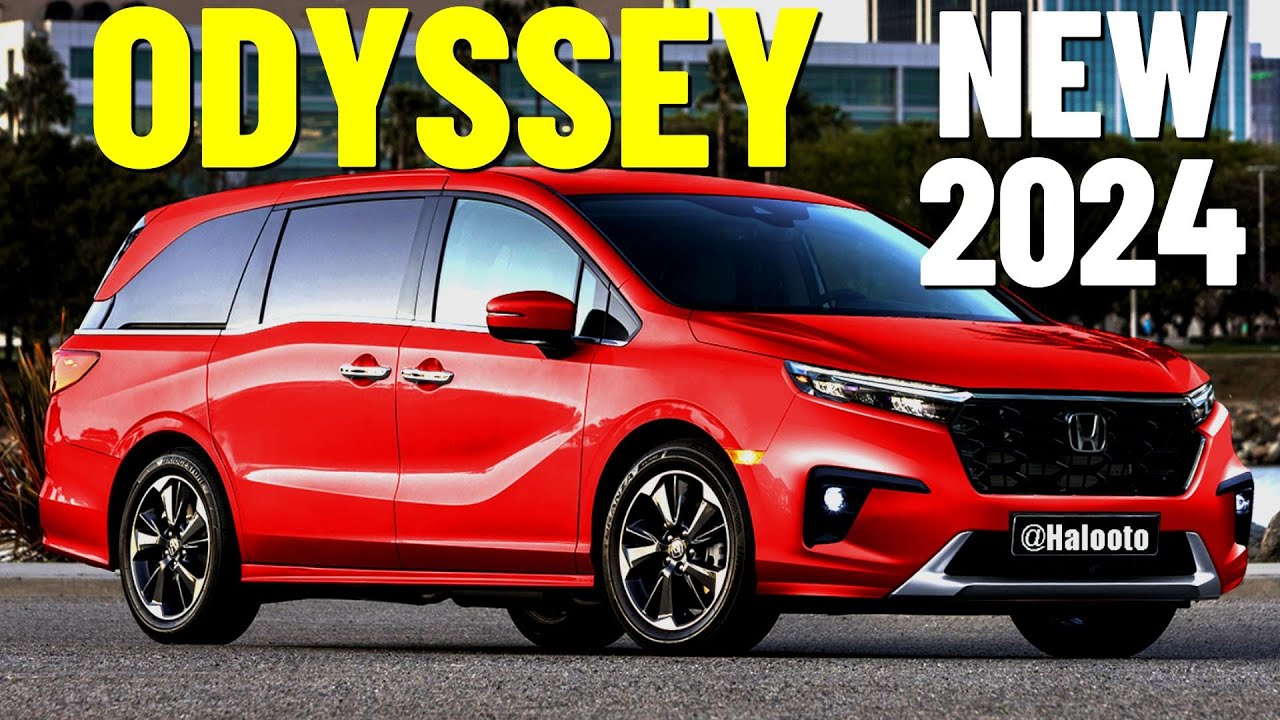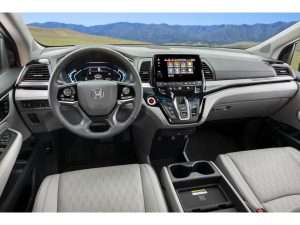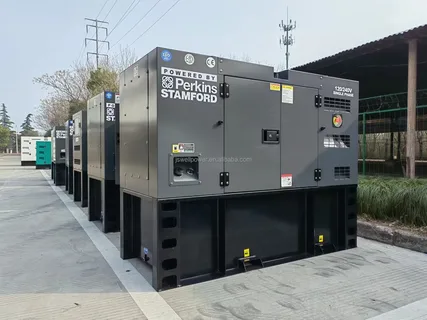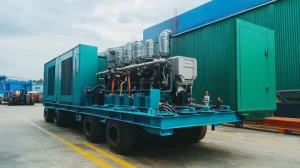Autos & Vehicles
Decoding the 2024 Honda Odyssey: Price Evaluation and Technical Specs

Introduction
Amidst the ever-evolving landscape of family-oriented vehicles, the 2024 Honda Odyssey emerges as a beacon of reliability, versatility, and innovation. In this comprehensive analysis, we delve into the intricacies of Honda’s latest offering, decoding its pricing structure and dissecting its technical specifications to provide a nuanced understanding of what sets the Odyssey apart in the competitive minivan market.
As families seek a vehicle that seamlessly blends practicality with comfort, the Honda Odyssey stands out as a stalwart contender. With its longstanding reputation for durability and thoughtful design, the 2024 model continues to build upon the Odyssey’s legacy, offering an array of features tailored to meet the diverse needs of modern families.

Image by: hearstapps.com
Unveiling the Pricing Structure: 2024 Honda Odyssey
Understanding the pricing breakdown of the 2024 Honda Odyssey is essential for prospective buyers looking to make an informed decision. The Odyssey offers a range of trim options, each catering to different budgetary constraints and preferences:
- EX: $39,635
- EX-L: $42,705
- Sport: $43,655
- Touring: $46,895
- Elite: $51,765
By evaluating the features and amenities offered in each trim level, consumers can discern which configuration best aligns with their priorities and budgetary considerations.
Technical Specifications Unveiled
Engine and Performance of 2024 Honda Odyssey
At the heart of the Odyssey lies a potent 3.5-liter V-6 engine, delivering a formidable 280 horsepower and 262 pound-feet of torque. Paired with a refined ten-speed automatic transmission, the Odyssey exhibits lively acceleration and confident handling, making it a joy to drive both in city streets and on long highway journeys.
Fuel Efficiency of 2024 Honda Odyssey
Despite its robust performance capabilities, the Odyssey remains impressively fuel-efficient, boasting EPA ratings of 19 mpg in the city and 28 mpg on the highway. Real-world testing has demonstrated even greater efficiency, further solidifying the Odyssey’s reputation as a frugal choice for families seeking to minimize fuel expenses.
Interior Comfort and Cargo Space

Image by: hearstapps.com
Step inside the Odyssey, and you’ll be greeted by a spacious and meticulously crafted interior designed to accommodate the needs of passengers and cargo alike. The innovative Magic Slide seats in the second row offer unparalleled versatility, allowing for multiple seating configurations to accommodate varying passenger loads and cargo requirements.
Infotainment and Connectivity
Equipped with an intuitive 8.0-inch touchscreen infotainment system, the Odyssey ensures that occupants stay connected and entertained throughout their journey. With features such as Apple CarPlay, Android Auto, and optional rear-seat entertainment, the Odyssey caters to the diverse preferences of modern tech-savvy families.
Safety and Driver-Assistance Features of 2024 Honda Odyssey
Safety is paramount in the Odyssey, with Honda’s advanced suite of driver-assistance technologies coming standard across all trim levels. From automated emergency braking to lane-keeping assist, the Odyssey offers peace of mind for drivers and passengers alike, ensuring a safe and secure driving experience.
Conclusion
In decoding the 2024 Honda Odyssey, it becomes evident that Honda has crafted a minivan that excels in every aspect crucial to family-oriented transportation. With its competitive pricing, robust performance, and extensive array of features, the Odyssey stands as a testament to Honda’s commitment to innovation and excellence in the minivan segment. For families seeking a vehicle that effortlessly combines practicality, comfort, and safety, the 2024 Honda Odyssey emerges as a compelling choice that truly delivers on all fronts.
Autos & Vehicles
Amtrak Route 128 Westwood MA: Your Convenient Transportation

Amtrak Route 128 Westwood MA is a major transportation node in the Route 128 station. This station is operated by Amtrak and serves as a convenient rail link for both local and long-distance travelers. Route 128 station, located in Westwood, Massachusetts, is famous for its accessibility, modern infrastructure, and prime location on the Northeast Corridor.
Passengers traveling via Amtrak Route 128 Westwood MA enjoy frequent train operations that link major cities like Boston, New York, Providence, and Washington, D.C. The station has parking garages, waiting rooms, ticketing facilities, and easy highway access, making it a popular destination for passengers seeking to avoid downtown traffic. Business travelers and tourists alike depend on this station for its convenient schedules and comfortable rail travel.
Overview of Amtrak Route 128 Westwood MA Station
The Amtrak Route 128 Westwood MA station is officially known as Route 128 Station and is located at:
- 1285 University Ave, Westwood, MA 02090
- This station is an important stop on Amtrak’s Northeast Corridor line. It is also served by MBTA commuter rail, making it an excellent transfer station for both local and long-distance travelers.
- Route 128 Station is well-known for its clean facilities, easy parking access, and convenient location near major highways like I-95 and Route 128.

Why Choose Amtrak Route 128 Westwood MA?
Many travelers prefer Amtrak Route 128 Westwood MA instead of Boston South Station because it offers:
- Less crowded platforms
- Easier parking options
- Faster highway access
- Smooth drop-off and pickup area
- Convenient connections to MBTA commuter rail
For passengers living in the suburbs like Westwood, Dedham, Norwood, Canton, or even Providence, Route 128 is often the best alternative.
Amtrak Route 128 Westwood MA is an important transportation hub in Route 128 station, serving travelers across the Boston metropolitan area. Operated by Amtrak, this station provides convenient rail connections for both regional commuters and long-distance passengers. Located in Westwood, Massachusetts, Route 128 station is known for its accessibility, modern facilities, and strategic position along the Northeast Corridor.
Passengers using Amtrak Route 128 Westwood MA benefit from frequent train services connecting major cities such as Boston, New York, Providence, and Washington, D.C. The station features parking garages, waiting areas, ticketing services, and easy highway access, making it a preferred choice for travelers looking to avoid downtown congestion. Business travelers and tourists alike rely on this station for reliable schedules and comfortable rail journeys.
Amtrak Routes Available at Route 128 Westwood MA
The Amtrak Route 128 Westwood MA station is primarily served by trains operating on the Northeast Corridor. This means you can travel directly to several major cities.
Popular destinations include:
- Providence, RI
- New Haven, CT
- Stamford, CT
- New York City (Penn Station)
- Philadelphia, PA
- Baltimore, MD
- Washington, D.C.
This station is served by major Amtrak services such as:
- Amtrak Northeast Regional
- Amtrak Acela (select trains)
If you are commuting between Boston and New York frequently, Route 128 is a smart station to use.
Amtrak Acela at Route 128 Westwood MA
One of the biggest advantages of Amtrak Route 128 Westwood MA is that it supports select Acela high-speed trains. Acela is Amtrak’s premium service, offering faster travel time and business-class seating.
If you want to reach New York City in less time, Acela trains from Route 128 are a great option. Amtrak Route 128 Westwood MA is an important transportation hub in Route 128 station, serving travelers across the Boston metropolitan area. Operated by Amtrak, this station provides convenient rail connections for both regional commuters and long-distance passengers.
Located in Westwood, Massachusetts, Route 128 station is known for its accessibility, modern facilities, and strategic position along the Northeast Corridor. Passengers using Amtrak Route 128 Westwood MA benefit from frequent train services connecting major cities such as Boston, New York, Providence, and Washington, D.C. The station features parking garages, waiting areas, ticketing services, and easy highway access, making it a preferred choice for travelers looking to avoid downtown congestion. Business travelers and tourists alike rely on this station for reliable schedules and comfortable rail journeys.
MBTA Connection at Route 128 Station
Route 128 Station is not only an Amtrak station it’s also an MBTA commuter rail station.
The MBTA Providence/Stoughton Line stops here, making it easy for travelers to connect between:
- Boston South Station
- Back Bay Station
- Providence Station
This makes Amtrak Route 128 Westwood MA a key transportation hub for both daily commuters and long-distance travelers.
Parking at Amtrak Route 128 Westwood MA
Amtrak Route Parking is one of the biggest reasons travelers prefer Route 128 Station.
Parking Features:
- Large parking garage and surface lots
- Paid parking available daily
- Accessible parking spaces
- Safe and well-lit parking areas
If you’re traveling for a weekend trip or a business visit, Route 128 parking is far easier compared to downtown Boston stations.
Parking Tips:
- Arrive early during peak travel times
- Keep your ticket or payment receipt safe
- Use the garage if traveling during winter for extra protection
The Amtrak Route 128 Westwood MA parking area is ideal for long-distance travelers who want peace of mind while leaving their car behind.
Station Facilities and Amenities
Amenities include:
- Indoor waiting area
- Restrooms
- Ticket vending machines
- Amtrak ticket counter (limited hours)
- Elevators and escalators
- Accessible boarding platforms
- Wi-Fi access in some areas
- Nearby food and coffee options
The station is designed to be comfortable for both short and long waits.
Location and Instructions for Amtrak Route 128 Westwood MA
The station is located close to major highways, making it very easy to reach.
Best ways to reach the station:
- From Boston: Drive south via I-95
- From Providence: Drive north via I-95
- From nearby towns: Use Route 1 or Route 128
The station is near University Avenue in Westwood, which also has shopping centers, restaurants, and business offices.
If you’re using GPS, search Amtrak Route 128 Westwood MA for the most accurate directions.
Ticket Booking Options
Booking tickets for Amtrak Route 128 Westwood MA is simple. You can purchase tickets through:
- Amtrak official website
- Amtrak mobile app
- Ticket vending machines at the station
- Ticket counter (if open)
It’s recommended to book early, especially for Acela trains, as prices rise closer to departure.
Travel Tips for Route 128 Station
If you’re planning to use Amtrak Route 128 Westwood MA, here are some helpful travel tips:
1. Arrive Early
Try to arrive at least 30–45 minutes before departure, especially if you need parking.
2. Keep Your Ticket Ready
Amtrak conductors usually scan tickets onboard, so keep your phone or printed ticket accessible.
3. Choose Your Seat Quickly
On Northeast Regional trains, seating is often open. Boarding early helps you get a better seat.
4. Watch for Platform Announcements
Pay attention to digital boards and announcements, as platform changes may happen.
5. Use Route 128 for Faster Pickup
If someone is picking you up, Route 128 is easier than downtown Boston stations.
Nearby Hotels and Attractions
If you’re traveling through Amtrak Route 128 Westwood MA, there are plenty of nearby hotels and attractions.
Nearby Hotels:
- Courtyard by Marriott Boston Dedham/Westwood
- Hilton Garden Inn Foxborough
- Hampton Inn Boston Norwood
Nearby Attractions:
- Legacy Place Shopping Center
- University Station shopping and dining
- Gillette Stadium (short drive)
- Blue Hills Reservation
This makes Route 128 an excellent stop for both business and leisure travelers.
Is Amtrak Route 128 Westwood MA Better Than Boston South Station?
For many travelers, yes.
Route 128 is better if you:
- Want easier parking
- Prefer less crowded station platforms
- Live outside Boston
- Want faster highway access
South Station is better if you:
- Are already in downtown Boston
- Need access to subway lines
- Want more food and shopping options inside the station
Overall, Amtrak Route 128 Westwood MA is a great alternative for anyone traveling from suburban Boston areas.
Final Thoughts
The Amtrak Route 128 Westwood MA station is one of the best and most convenient train stations in the Greater Boston region. With access to Amtrak Northeast Regional, select Acela services, MBTA commuter rail connections, and easy parking, it is a top choice for both commuters and long-distance travelers.
Autos & Vehicles
International Moving: Choosing the Right Company Guide

Understanding Why International Moving Is Different
When someone is planning an overseas relocation, the first thing to explain is that international moving is far more complex than a local move. According to migration data from the United Nations, more than 280 million people worldwide live outside their country of birth. That means millions of cross-border relocations happen every year, and each one requires detailed coordination.
Sea freight shipments usually take between 4 to 8 weeks, while air freight may take 1 to 3 weeks but cost up to four times more. Around 70% of global household goods are shipped by sea because it is more economical for large volumes.
Customs Regulations and Legal Requirements
One of the most critical parts of overseas relocation is customs clearance. Each nation possesses distinct import regulations, tariffs, and paperwork necessities. Even a small paperwork error can delay shipments for weeks.
For example, the U.S. Customs and Border Protection provides detailed guidelines for importing household goods into the United States.
Professional international movers understand these regulations and prepare documentation accordingly.
Core Services You Should Expect
A reliable international relocation company typically provides:
- Pre-move surveys to estimate shipment volume
- Export-grade packing materials
- Detailed inventory lists
- Freight booking (sea or air)
- Customs documentation handling
- Insurance coverage (usually 1–3% of shipment value)
- Door-to-door delivery services
These services are essential for a smooth global move.
Evaluating Experience and Industry Credentials
Experience is one of the strongest indicators of reliability in overseas moving services. Companies that manage thousands of international shipments annually have systems in place to handle delays, documentation challenges, and logistics coordination.
Check Industry Memberships and Accreditations
Professional movers are often members of recognized trade associations such as the International Association of Movers. Membership indicates adherence to industry standards and ethical practices.
This helps customers feel confident when hiring international relocation services.
Compare Transparent Pricing Structures
International moving costs typically range between $3,000 and $10,000 for a three-bedroom household, depending on destination, shipment size, and freight type.
When evaluating quotes, make sure the estimate clearly explains:
- Packing charges
- Freight costs
- Destination handling fees
- Customs clearance costs
- Storage charges if applicable
Research shows that customers who compare at least three international moving quotes save between 12% and 18% on total relocation costs.
Why Comparing Options Before Hiring Matters
When someone searches online for reliable movers, they often feel overwhelmed. Many companies advertise global relocation services, but not all of them provide professional standards.
In the early stage of research, people frequently look into the Best International Moving Companies to understand which providers have verified experience and transparent pricing. Exploring structured resources helps avoid hiring inexperienced operators.
Key Questions to Ask Before Signing
Before finalizing a mover, ask these important questions:
- How many international moves do you handle annually?
- Do you offer full-value insurance protection?
- What are the estimated transit times?
- Who will be my point of contact during the move?
- How are claims handled in case of damage?
Professional international moving companies provide clear answers without hesitation.
Importance of Insurance and Risk Management
Shipping goods across oceans or continents carries risk. Insurance coverage usually costs 1–3% of the declared shipment value. It is important to understand the difference between basic carrier liability and comprehensive protection.
Authorities such as the Federal Maritime Commission explain the importance of working with licensed and compliant ocean transportation intermediaries.
Reviewing such authority resources ensures informed decision-making.
The Role of a Professional Moving Directory
Choosing the right mover becomes easier when you use a structured and trusted platform. Instead of randomly searching online, a professional moving directory helps filter reliable providers.
In the middle of the selection process, many individuals explore My Moving Journey to simplify their search. It is a dedicated moving directory designed to connect users with verified international relocation companies. Rather than guessing, users can compare global movers, review services, and access expert relocation guidance.
Benefits of Using a Moving Directory
Using a professional directory offers clear advantages:
- Easy comparison of international moving quotes
- Access to verified overseas movers
- Structured service information
- Reduced risk of hidden costs
- Time-saving research process
Because My Moving Journey focuses specifically on international and long-distance relocation, it serves as a reliable resource for individuals who want clarity before making a commitment.
Commercial Advantage of Comparing Services
From a commercial perspective, comparing relocation providers ensures:
- Competitive freight pricing
- Transparent insurance terms
- Better service customization
- Clear delivery timelines
Early planning, combined with structured comparison, can reduce overall relocation costs by up to 15–20%.
Practical Steps to Make the Right Choice
Planning at least three months before your move provides flexibility in freight scheduling and documentation preparation.
Smart Pre-Move Checklist
Before hiring a mover:
- Declutter and reduce shipment size
- Decide between air and sea freight
- Verify licensing and credentials
- Review written contracts carefully
- Confirm insurance coverage details
These steps prevent unexpected surprises later.
Communication Is the Final Indicator
International relocation is often ranked among the top five most stressful life events. Clear communication significantly reduces anxiety.
Choose a mover that provides:
- Dedicated move coordinators
- Regular shipment updates
- Transparent billing
- Quick response to inquiries
The way a company communicates before you sign a contract often reflects how they will manage your shipment.
Autos & Vehicles
Caribbean Generator Set Market: Growth Prospects and Keys

The geographical and infrastructural peculiarities of the Caribbean region offer both opportunities and challenges for energy reliability. Because a few island countries are scattered across the Atlantic Ocean and the Caribbean Sea, governments and utility companies have found it difficult and expensive to introduce a fully interconnected and reliable power grid.
As a result, the high demand for reliable backup power has made generator sets an essential energy component. According to a recent study by MarkNtel Advisors. The Caribbean Generator Set Market is poised to experience robust growth in the forecast period until 2032, driven by constant power reliability concerns, the threat of natural disasters, and ongoing infrastructure development within the region.
Caribbean Generator Set Market Size and Forecast
The Caribbean Generator Set Market is estimated at USD 144.04 million in 2025 and is expected to reach USD 230 million in 2032. This anticipated growth reflects a healthy compound annual growth rate (CAGR) of approximately 8.11% during the 2026-2032 period, indicating a growing dependence on gensets for uninterrupted power supply.
Fluctuating utility grids, frequent power shortages, and a high rate of extreme weather events like hurricanes, floods, and earthquakes have all heightened the desire for reliable power. Stakeholders deploy generator sets not only in residential and commercial buildings but also in vital sectors such as healthcare, transport, telecommunication, and construction, where power cuts can significantly inconvenience critical services and disrupt economies.

Drivers of Growth
Several major forces underpin the growth of the Caribbean Generator Set Market. The region’s isolated grid systems make it difficult for utility companies to provide a constant electricity supply across all islands. Regular grid power disruptions, such as the lengthy blackouts that have affected countries like Cuba and Puerto Rico, highlight the need for businesses and homeowners to use backup power sources to keep operations running during such outages. Besides grid instability, the Caribbean’s susceptibility to natural disasters makes generator sets necessary for emergency preparedness and recovery.
Continuous infrastructure and construction work also add to market growth. For instance, large-scale projects like road construction, which regional development banks often support, require a reliable electricity supply in isolated places where grid power is limited or unavailable. In such environments, portable and sturdy generator sets—especially diesel-driven ones—are essential for providing power to equipment and tools, allowing construction and development to continue without disruptions.
Market Segments and Trends
When segmenting the Caribbean Generator Set Market by fuel type, diesel-based generator sets account for the largest share. Diesel gensets are popular because of their longevity, cost-effectiveness, and low maintenance needs. They are reliable and perform well in different environmental conditions, making them suitable for construction sites, commercial buildings, equipment rental services, and various industries across the region.
Although diesel is the major fuel type, interest is growing in potential alternatives, including natural gas, gasoline, hybrid, and other emerging technologies. As sustainability and emission concerns become more prominent, hybrid generator sets that combine traditional fuel with battery systems or renewable energy integration could gain popularity in some segments, especially where environmental standards are evolving and governments implement clean energy policies.
End-User Demand Dynamics
The Caribbean has a large number of end users of generator sets. Hospitality, retail, schools and data centers in the business world use backup power to maintain operations of their businesses and protect business critical functions. Electrical power is needed at all times by healthcare facilities especially to support life-saving medical equipment and services to patients. The transport and government sectors are other essential users of generator sets particularly in the disaster response and the operations of the social security in the event of grid outage.
Industrial uses such as manufacturing plants, assembly plants, mines, and oil and gas facilities are also a source of demand of generator sets. These are remote facilities that usually have restricted grid power supply and therefore gensets become very necessary in ensuring the facility is productive and operating at its usual pace. Moreover, equipment rental firms are increasingly gaining prominence in the provision of temporary power to companies and individuals who have a one-time demand of electricity.
Competitive Landscape
The Caribbean Generator Set Market has a competitive and varied environment of players on a global and regional level. As per the report prepared by the MarkNtel Advisors, the following companies target this market:
- Caterpillar Inc.
- Cummins Inc.
- Generac
- Discovery Energy, LLC (Rehlko)
- AGG Power Group
- INGCO
- PowerLink
- Mitsubishi Heavy industries.
- Genesal Energy
- Forest City Generators
- Atlas Copco
- Others
These companies introduce both the worldwide brand reputation and local experience, which provide a broad mix of different genset models in various types of fuel, power output, and applications to suit the needs of the Caribbean market. Some of the most famous ones are Caterpillar and Cummins with their high reliability and large networks of service. Other companies such as Generac and AGG Power Group are also playing a role in diversified product offerings which serve residential, commercial as well as industrial markets.
The Future Strategic Opportunities.
The Caribbean Generator Set Market is facing a number of strategic opportunities that can be exploited by the stakeholders. The continuous growth of the commercial infrastructure, increase in the energy consumption by the residential and industrial sectors and the growth in investment in disaster resistant energy systems are opening up new avenues of growth. The manufacturers and suppliers of generator sets may also be able to increase market penetration by creating localized service networks, tailoring financing options. Also developing product innovations to increase fuel efficiency and decrease operation costs.
With the region looking into cleaner energy options and hybrid power brands, market participants could also look into partnering or integrating technologies, fusing genset reliability and renewable energy power sources and energy storage solutions.
-
Business3 years ago
Cybersecurity Consulting Company SequelNet Provides Critical IT Support Services to Medical Billing Firm, Medical Optimum
-
Business3 years ago
Team Communication Software Transforms Operations at Finance Innovate
-
Business3 years ago
Project Management Tool Transforms Long Island Business
-
Business2 years ago
How Alleviate Poverty Utilized IPPBX’s All-in-One Solution to Transform Lives in New York City
-
health3 years ago
Breast Cancer: The Imperative Role of Mammograms in Screening and Early Detection
-
Sports3 years ago
Unstoppable Collaboration: D.C.’s Citi Open and Silicon Valley Classic Unite to Propel Women’s Tennis to New Heights
-
Art /Entertainment3 years ago
Embracing Renewal: Sizdabedar Celebrations Unite Iranians in New York’s Eisenhower Park
-
Finance3 years ago
The Benefits of Starting a Side Hustle for Financial Freedom





























